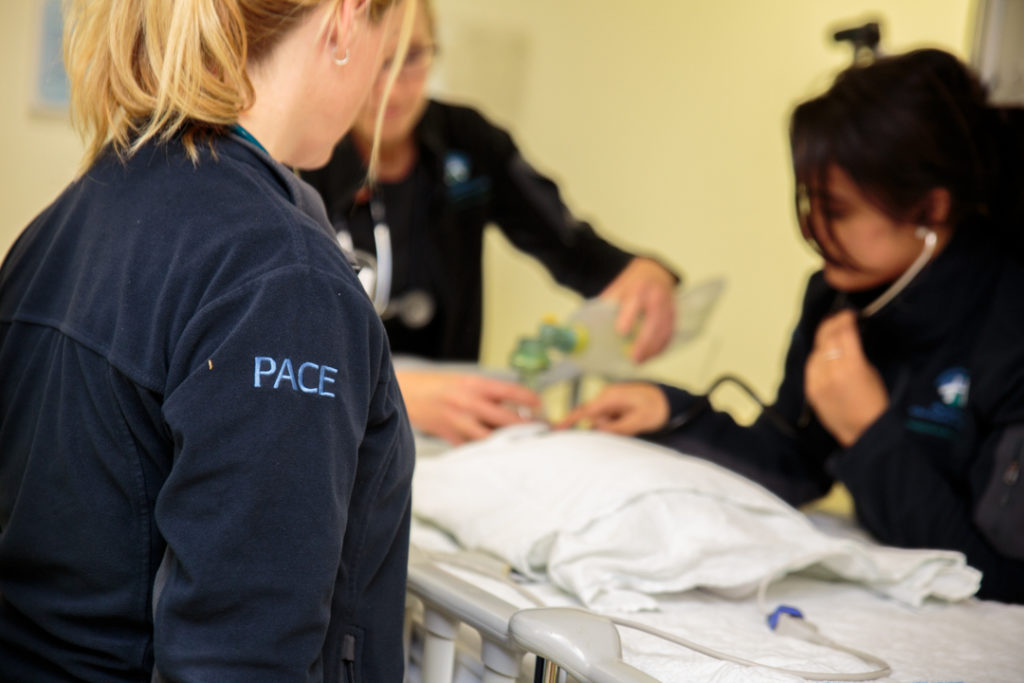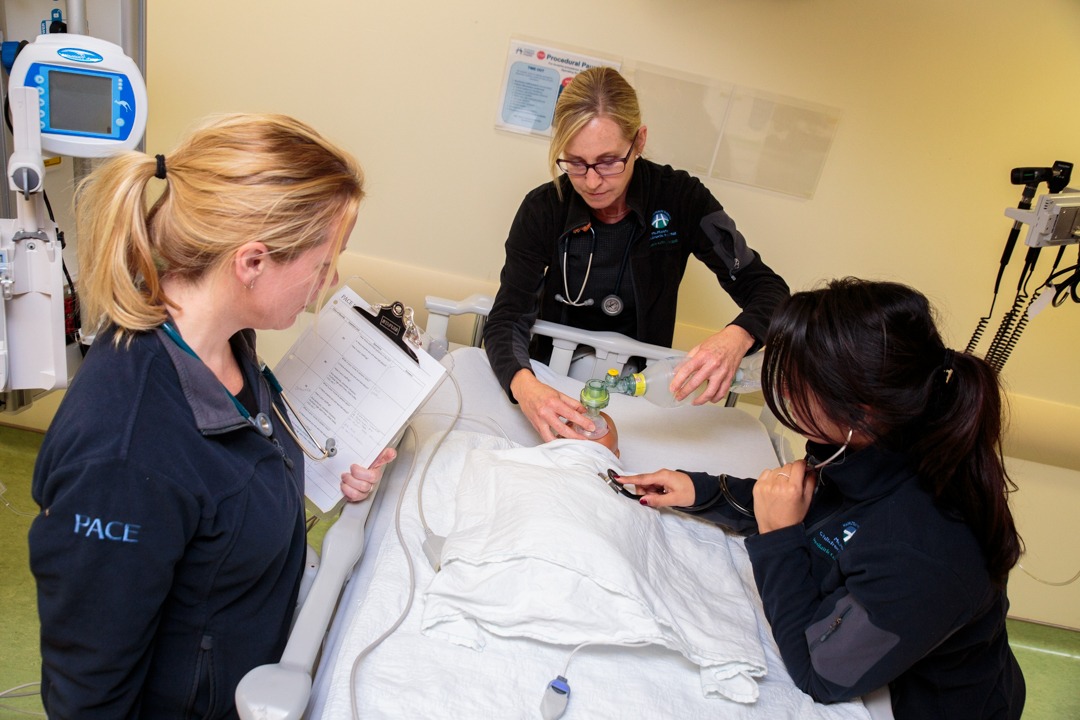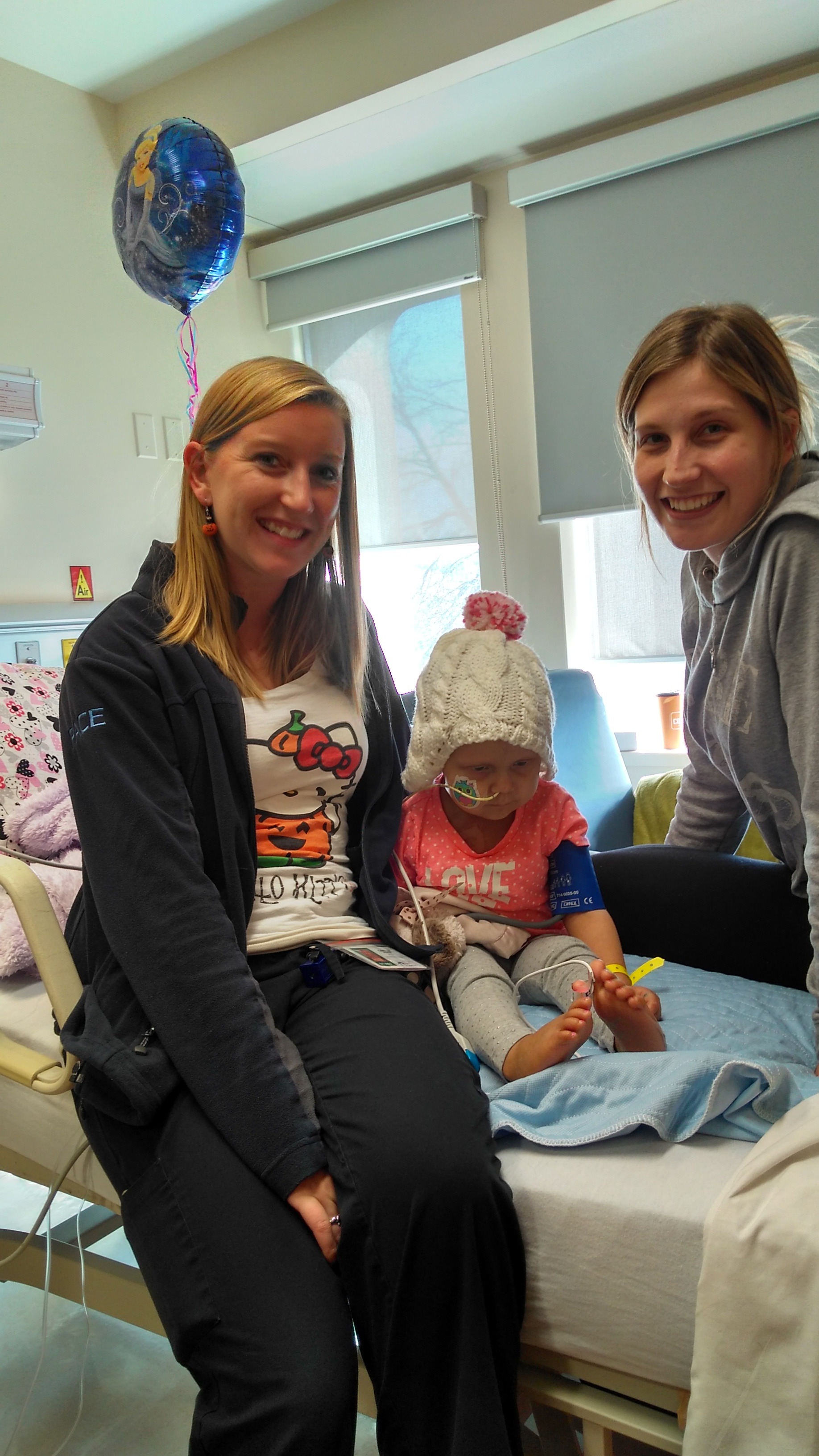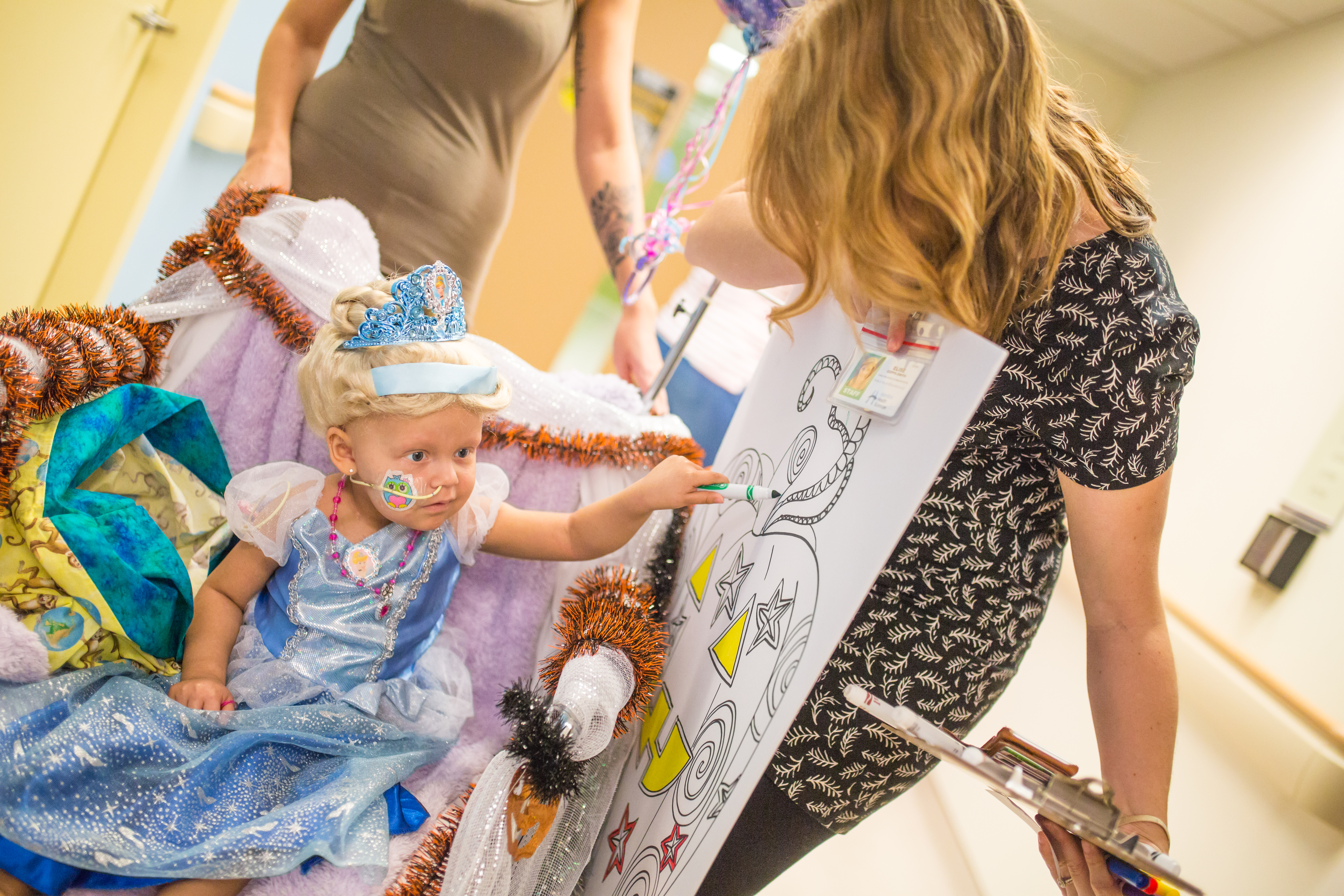
Rapid response, rapid recovery: PACE Team celebrates 10 years
November marks the ten year anniversary of the PACE (Pediatric Assessment of Critical Events) Team at McMaster Children’s Hospital (MCH). One of only four such teams in the province, the MCH PACE Team is made up of experts from pediatric critical care, including nurses, respiratory therapists and doctors. They support health care providers in caring for seriously ill children across MCH.
What started as a rapid response team has evolved over the years to include mentorship and knowledge sharing components that empower inpatient staff across the entire spectrum of pediatric acute care services. PACE provides patient assessments, monitoring, and in the moment support with complex tasks and procedures.
“It’s about working together to achieve the best outcomes possible for all children.”
“PACE has a collaborative approach to care,” says Marissa Bird, PACE Team Nursing Lead. “There is a sense of shared responsibility for all patients under the MCH umbrella. It’s about working together to achieve the best outcomes possible for all children.”

With every PACE activation, a nurse, respiratory therapist and doctor arrive to the patient’s bedside within fifteen minutes. They work with the inpatient team to assess the status of the child, give recommendations, and initiate treatments. Together, they create a care plan that allows the patient to remain on their inpatient unit with additional support, or to be transferred to a higher level of care if necessary.
Makinley is one of many patients that has benefitted from the collaborative approach of the PACE Team. The almost three-year old was diagnosed with brain cancer in April 2016. She and her family have spent the last six months in and out of the hospital, having surgery, chemotherapy, and recovering.
Recently, Makinley required an urgent activation of the PACE Team when her central venous line (a large specialized intravenous (IV) line in her chest) got infected, and she became seriously ill.
“Knowing that PACE is here if you need them is comforting.”
“I could just tell, and it happened so fast,” says Carol-Anne, Makinley’s mom. “Her fever was as high as I have ever seen it, and she was shaking uncontrollably. PACE arrived, and very quickly, critical care interventions were started. Makinley was transferred to the Pediatric Intensive Care Unit (PICU).

She spent two days in the PICU, before being transferred back to the hematology-oncology ward when her condition stabilized. There, she finished a course of antibiotics with monitoring from both her inpatient team and PACE. Her condition improved so quickly that she was able to enjoy decorating her room for Halloween before being discharged home. “Knowing that PACE is here if you need them is comforting,” Carol-Anne says. “It’s nice to know that they will see her immediately. I feel like we are in good hands.”

Dr. Lysecki, a physician on the hematology-oncology ward sees the impact PACE has had on many patients like Makinley. “As children with cancer, our patients are vulnerable to sudden critical health crises, every hour of every day,” he says. “We know that early intervention leads to better outcomes in critical illness. The PACE service provides our patients rapid access to a coordinated, interdisciplinary team with expertise in critical care, 24 hours per day. Treating pediatric cancer takes a village; put simply, I don’t see how we could do it without PACE.”
”In the ten years it has been part of McMaster Children’s Hospital, PACE has grown and evolved,” says Bird. “With each evolution, we continue to ensure all children get the right care at the right time. It truly does embody Hamilton Health Sciences’ vision – Best Care for All”.
